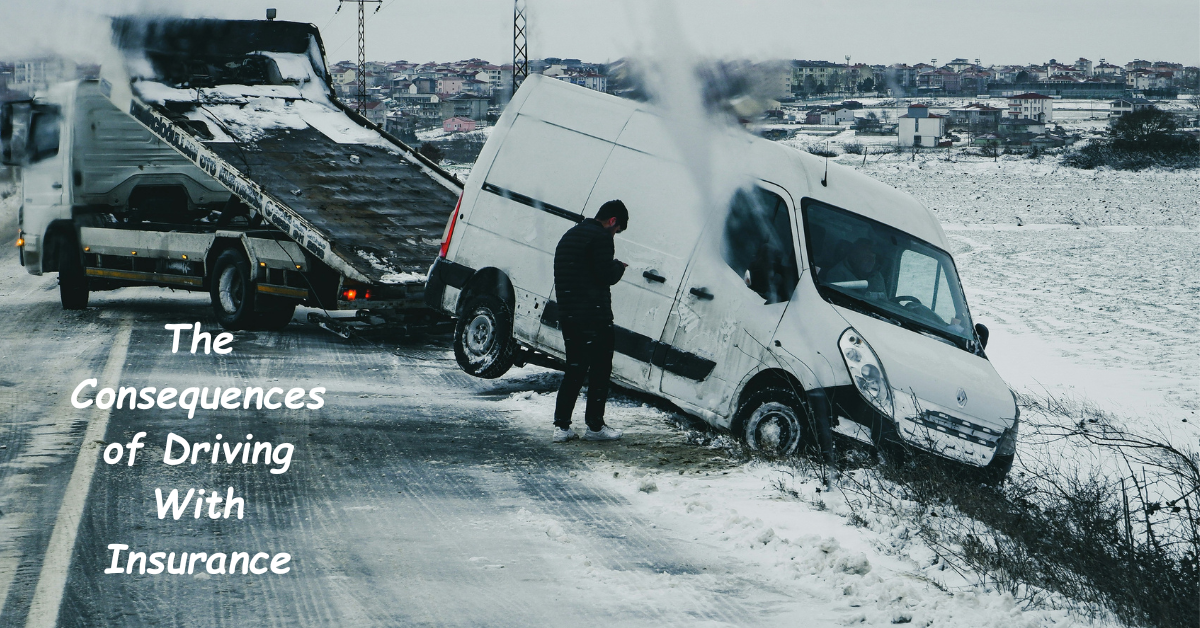When most people hear the word “consequences,” they instantly think of something negative. But let’s flip the perspective for a moment. Driving with insurance doesn’t bring you trouble—it brings you protection, financial security, and peace of mind. In fact, having car insurance isn’t just about following the law; it’s one of the smartest investments you can make as a driver.
So, what actually happens when you drive with insurance? Let’s dig into the positive consequences of staying insured and why it pays off in ways you may not have considered.
Driving Legally and Stress-Free
The first and most obvious consequence of driving with insurance is staying on the right side of the law. In most countries, car insurance is a legal requirement. If you’re insured, you can confidently get behind the wheel without the fear of being pulled over and fined for not having coverage.
This peace of mind is invaluable. Instead of worrying about tickets, license suspensions, or vehicle impoundments, you can focus on the road. Driving legally reduces stress—and less stress usually means safer driving.
Financial Protection in Case of an Accident
Accidents can happen to even the safest drivers. One distracted moment, a patch of ice, or another careless driver can cause thousands of dollars in damage. The consequence of having insurance? You’re not financially ruined.
- Liability insurance ensures that if you damage another person’s car or property—or worse, injure them—you won’t be personally responsible for the entire cost.
- Collision coverage helps repair or replace your car if it’s damaged in an accident.
- Comprehensive coverage protects you from non-collision events like theft, vandalism, or natural disasters.
With insurance, you avoid draining your savings or going into debt just to cover unexpected accidents.
Protection Against Uninsured Drivers
Here’s a sobering fact: not everyone on the road follows the rules. In many places, a surprising number of drivers don’t carry insurance. If one of them hits you, the financial consequences could be devastating.
That’s where uninsured/underinsured motorist coverage comes in. By carrying this insurance, you’re protected even when the at-fault driver can’t pay. It’s like having a backup plan for someone else’s irresponsibility.
Access to Medical Coverage
Car accidents aren’t just about fixing dents and replacing windshields—they can also cause serious injuries. Driving with insurance often means you have medical coverage included in your policy.
This coverage can pay for:
- Emergency room visits.
- Ongoing treatment or physical therapy.
- Lost wages if you can’t work.
Instead of worrying about how you’ll afford medical bills, your insurance steps in to support your recovery.
Legal Protection When Things Get Complicated
Accidents don’t always end with a handshake and an insurance claim. Sometimes, they lead to disputes, lawsuits, or legal battles. Driving with insurance means you’re not alone in these situations. Many policies include legal defense if you’re sued after an accident.
Think of it this way: instead of facing court costs and legal fees on your own, your insurance company provides resources and representation to protect your interests.
Coverage for Non-Driving Incidents
Another overlooked benefit of driving with insurance is protection when your car isn’t even moving. Comprehensive insurance, for example, covers situations like:
- Theft or break-ins.
- Fire or flood damage.
- A tree branch falling on your car during a storm.
These “consequences” of being insured save you from unpredictable expenses and provide security beyond the road.
Long-Term Financial Stability
Without insurance, one serious accident could wipe out your savings, damage your credit, or even force you into bankruptcy. With insurance, the consequence is the opposite—you safeguard your long-term financial health.
Instead of scrambling to cover damages, you pay a predictable monthly or yearly premium. It’s a financial safety net that helps you stay stable even when life throws curveballs your way.
Peace of Mind for You and Others
Driving with insurance isn’t just about you—it’s about everyone sharing the road. Other drivers, pedestrians, and passengers all benefit from knowing that if an accident happens, there’s a system in place to make things right.
This collective peace of mind creates a safer driving culture. People are more confident knowing they won’t be left high and dry if someone else makes a mistake.
The Consequences of Trust and Responsibility
Finally, there’s the consequence of trust. Driving insured shows responsibility. It tells others—family members, passengers, and even society—that you take safety and accountability seriously. This isn’t just about avoiding fines; it’s about being a responsible member of your community.
The Bottom Line
Driving with insurance doesn’t carry “negative” consequences—it carries positive ones. You gain legal compliance, financial protection, medical support, peace of mind, and long-term stability. In a world where accidents and unexpected events are part of life, insurance isn’t just a requirement; it’s a lifeline.
So the next time you pay your premium, don’t see it as money disappearing from your account. See it as an investment in protection, peace of mind, and a brighter financial future.
Frequently Asked Questions (FAQs)
1. Is it worth paying for more than the minimum required insurance?
Yes. While minimum coverage keeps you legal, it may not fully protect you financially in a serious accident. Choosing higher limits and adding comprehensive or collision coverage ensures you’re better prepared for the unexpected.
2. Can car insurance cover me if I let someone else drive my car?
In most cases, yes. Car insurance typically follows the vehicle, not the driver. This means if you lend your car to a friend and they get into an accident, your insurance will usually apply. However, check your policy details to be sure, as rules vary.
